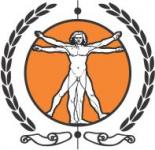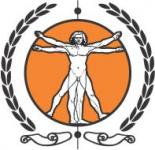Development

Development is a process related to the expansion of the conscious effort, which is linked to the ability or inability not only to be on the Way of knowledge but also to operate with knowledge. Development can be considered such only if the person has already mastered the algorhythm of perfection, which is not simply an effect of development but also a factor for it. Having a conscious control of the process guarantees the perfection not only of the process itself, but also of the mind.
Development is a condition that can have no limit. Development that is finite by nature cannot be considered true development. Finiteness results from the fact that the mind has been subordinated to a process believed to be a development, however in this situation it does not in fact control this process. This means that the mind has been incorrectly developed which leads to a deviation in self-development. As a result we usually get a disrupted geometry of the brain that prevents the mind from gaining strength through the process of concentration.
This disruption is typically linked to an inability to learn or the fact that the learning process has been subordinated to affective states through which the development of Man’s experiences has been downgraded or subjected to the baser forms of Man’s life.
Development must always be based on a scheme so that its content-richness does not divert Man from the capability of being in a continuous effort. In other words the effort of the process of development should always stand higher than the aim of reaching a particular goal through this development. This is the most important condition for preserving growth, which in fact determines the algorhythm.
The only guide in development is the measure of knowledge, which is based on Man’s personal qualities and the power of the person. This sets before the mind the task of attaining not only a good understanding of this power but also an ability to nurture it. Consequently, there can be no development without a proper operation of the mind.
Development is real if it leads to self-perfection in all areas of Man’s existence. The professional should never be developed at the expense of the aesthetic, the external – to the expense of the internal, the internal – to the expense of the external. Bearing in mind that any development leads to the perfection of experiences and the enhancement of vitality, rather than its expenditure, development should be understood mainly from the perspective of the method and also from the perspective of knowledge. The method of development is always based on the human, the natural (temporary) and the spatial parameters. It cannot and should not damage the symmetry and should correspond to activities that make development the most important investment indicator for Man, i.e. that turn development into self-investment.
We cannot call development that, which does not develop in Man his human qualities, therefore the development process should have clear benchmarks and indicators for the perfection of the physical, energetical and mental qualities. What would be really dangerous here is to build one’s development within one’s desires and reactions, i.e. subject it to uncontrolled and unregulated forms of existence where the comprehensible function is replaced by a justification for actions and deeds resulting from affective and emotional processes.
Development must educate people and help them understand the difference between the temporal and the spatial experiences in order to prevent Man’s consciousness from inventing suitable definitions for actions that remain not fully understood. This means that we must learn to see all our deeds and actions not reflexively, but consciously, and from different perspectives.
Development is not a linear process, it is a spiraling, three-dimensional process where the active elements do not distract the mind from the median state of the concepts. In this three-dimensional process we start not from the availability of what’s already given but from the very process that changes this given. Development consists, first and foremost, from the conditions that either contribute to our consciousness, body and energy to exist in an oriented state, or do not do so.
The process of development is that, which above all nourishes our mind. This is why we need to understand the conditions for existence of both our body and our energy. Man can perfect his natural qualities only if he perfects his mind, which not only imposes certain requirements on our energy and body but most importantly regulates them.
We cannot perfect ourselves unless we enhance our natural qualities. Because they determine the quality of our effort, our ability to grow and follow or depend on the elaborated or expressed forms. Development is impossible without the effort. What is equally impossible is to substitute one experience for another not having changed the effort of one’s existence. We cannot nurture, improve or change anything unless we change the effort by which we influence our brain and body.
Development must not be divided into mental, energetic and physical because all of these represent one entity. The mental culture can never develop effectively without an understanding of the physical culture and vice versa, for one feeds the other.
Without the effort we are easily prone to falling into an uncontrolled state, and this state is a violation of the algorithm of development. If the possibility of permanent growth has not been achieved, then there is no algorithm. Therefore, such a process can not be considered a true development. Whatever the task before us, it must be part of the process and must not lead us astray from what we have acquired as a constancy. Development must be guided by tasks (which will allow us to exist in this very development) and not goals, which distract us from our constancy. It is important that we understand here the overall idea - what a goal is and what a task is – rather than accept something that we do not understand.
The goal can never be comprehensible, since it is a delayed condition. The task, on the other hand, is a constant expressed condition. If this constant value is not present, then there’s no task. And if it’s present, then one task generates another and as a result we can materialize also this distant task that actually replaces the idea of the goal. This kind of knowledge should lie in the plane of development and not the plane of desire. The most dangerous thing in development is to be enslaved by the goal, to become dependent on an unmanifested tomorrow that forms within us an unmanifested today. In general the desire to determine your tomorrow not having learned to live today is equivalent to forming within ourselves a pseudo-life, which will never actually occur.
Development should take Man’s mind away from duality and lead it into multiplicity. This multiplicity however should be based on a center that nourishes and controls it. For a multiplicity with no center is always equal to deviation. What is multiplicity in fact? It’s a scheme. If multiplicity is not tied into a scheme, it is equal to chaos. Tying multiplicity into a scheme is in fact the ability to operate with one’s mind (or in more accurate terms – the ability to rely on it).
Work, education, personal life - everything must be subordinated to this scheme, in other words, to consciousness. Life can not be spontaneous if it is conscious. Spontaneity is chaos that captures the brain, which remains unclaimed by life, thus depriving Man not only of his will but also of the ability to manage his own life. In this case attaining experiences cannot be based on Man’s integrated inner self.
Man must not operate with the particular, he can operate only with integrity. If we are in fact operating with the particular, this means that the particular operates with us, because the particular is always equivalent to an inadequate existence, an inferior control. We can only develop holistically, or else by developing one thing, we’ll be aggravating something else. Bringing oneself to this state of integrity is the goal of true development.
15 september 2012


